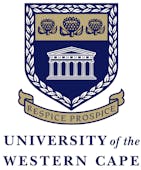Prof. Timothy Dube is a rated NRF Geospatial Scientist who joined the Department of Earth Sciences at the University of the Western Cape as Senior Lecturer in Environmental and Water Sciences in January 2018. He graduated with a Ph.D. in Environmental Science specializing in satellite remote sensing from the University of KwaZulu Natal in 2016. In 2012, he obtained an MSc Degree in Geoinformation Science and Earth Observation for Water Resources and Environmental Management (WREM) from the University of Twente, Faculty of Geoinformation Science and Earth Observation (ITC) the Netherlands. He did his undergraduate and honors degree studies in Geography from the University of Zimbabwe where he graduated with two University book prizes in 2008. His core research interest relates to developing and improving techniques for monitoring and understanding riparian ecosystems and their impacts on groundwater and surface water reserves, land-use change, invasive species modeling, climate change and variability as well as terrestrial carbon accounting. He has expertise in geospatial analytics and satellite remote sensing and sensor networks for terrestrial ecosystems, inland waters, and wetlands. He is currently one of the lead investigators of “The Global Monitoring for Environment & Security project, which is a European Union & the European Space Agency & AFRICA project an initiative; on Wetland Assessment and Monitoring using Earth Observation (EO) in Southern Africa”. He also participated in the TIGER-Bridge African Water and Climate Change Phase 1 Project, commissioned by the European Space Agency - Water for Agriculture (2016-2017) as the leading Principal Investigator for Africa. He is also involved in projects focusing on Non-Perennial Rivers in the semi-arid environments of South Africa. His research work has also been extensively supported by the South African Water Research Commission, the Applied Center for Climate & Earth Systems Science, French Research Platform – CIRAD.Prof. Dube has also been involved in intensive EO training & capacity building across different institutions of higher learning and research in Southern Africa. He is registered as a Natural Scientist by the South African Council of Natural Science Professions (SACNASP) and is a member of the African Association of Remote Sensing of the Environment (AARSE) and WaterNET. His engagement with EO technology applications is not only restricted to research in Africa but also involves collaborations with various EO experts from European institutions, promoting EO knowledge and skills transfer to enhance policy formulation and decision making that promote Economic Development in the Southern African Development Commission ( SADC) and Africa in general. Since 2014, he has authored and co-authored over a hundred international peer-reviewed journal articles and book chapters in the field of Earth Observation and has presented in both local and international conferences. To this date, his research has received significant global recognition, with 1103 citations and a google H-index of 17, an outstanding achievement for an early career researcher. So far, he has graduated a number of MSc and Ph.D. students and currently supervising ten postgraduate students. Last year, he was nominated for the 11th HOPE meeting with Nobel Laureates in Okinawa, Japan. To this end, he is developing cutting edge satellite remote sensing techniques suitable for addressing climate change, drought, environmental and water challenges in arid to semi-arid environments of Southern Africa.
Experience
-
2019–presentAssociate professor, University of the Western Cape
-
2022–presentProfessor, University of the Western Cape
Education
-
University of the Western Cape, Geoinformation Science and Earth Observation
-
2012University of Twente, MSc Water Resources and Environmental Management
Grants and Contracts
-
2019
- Role:
- Associate professor of Geosciences and Remote Sensing
- Funding Source:
- National Research Foundation
Honours
University of the Western Cape Best Early Career Researcher 2018
- Cape Town, South Africa
- Website
- @dube.timoth
- Article Feed
- 0219594130
-
For media enquiries,
tidube@uwc.ac.za - ORCID
- Joined


